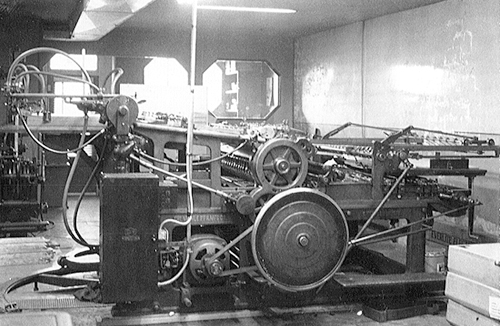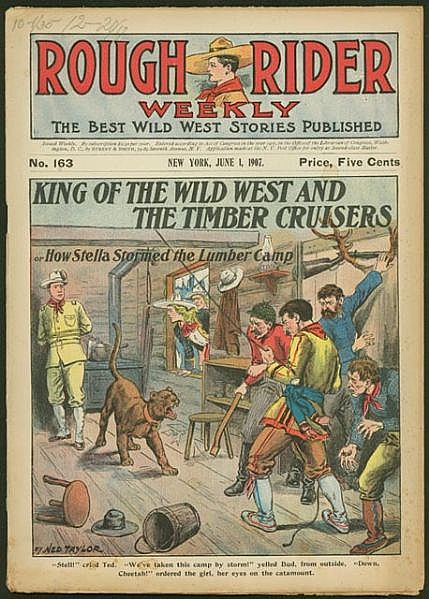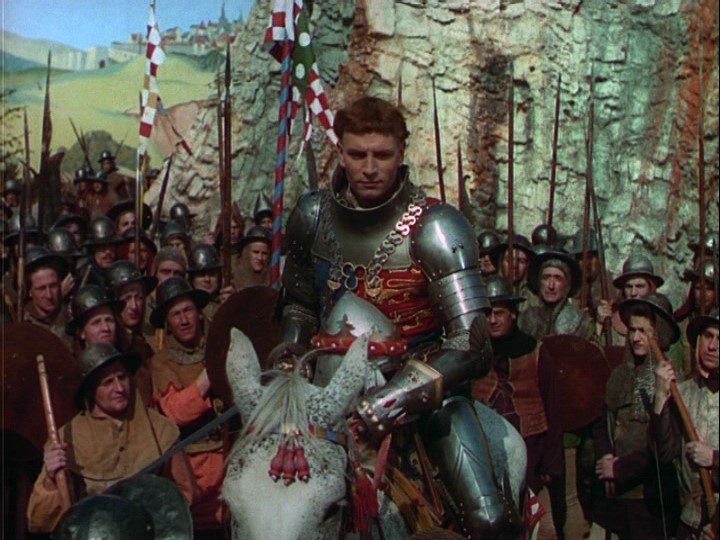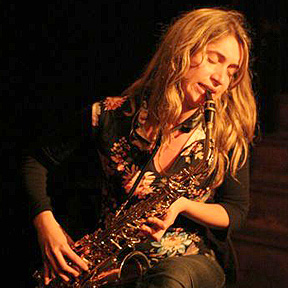
Three days before Christmas and a day past Winter Solstice, our lives are a crazy mixup of anticipation and loss. The longest night has given way to the rebirth of light. Summer’s a bare blip beyond the horizon, but we’ve turned the corner. Old Father Time is creaking toward New Year’s Eve, when that perky bouncing baby takes over with all the foolish optimism of inexperience. Christmas presents? Yup, we’re looking forward to ’em. Midwinter indeed, but hope is on the rise.
It’s a season for goodbyes and hellos and reinventions, and as we say a few farewells we suspect the people involved are like the seasons: This is a passage to something invigorated and refreshed.
***************
Fifty-two Pieces, one of Art Scatter’s favorite blogs, is about to enter its fifty-second week, and for its authors, Amy and LaValle, that will mean an ending and a beginning. They started their blog on Jan. 1, 2009, with the express intent of continuing it for fifty-two weeks and then letting a good thing go.
Each week this year they’ve chosen a single artist in the collections of the Portland Art Museum and explored his or her life and work in all sorts of fascinating ways. We’ve enjoyed the journey immensely, and now it’s almost over. We can hardly wait to see what comes next. God Jol.
***************
 Our good friend Barry Johnson, the original Scatterer, who had the idea for this blog and brought it into being before parting amicably to pursue his own arts column and Portland Arts Watch blog for The Oregonian, has come to another parting. Friday, Dec. 18, was his final day with The Oregonian: He took one of the buyouts that have become business as usual in the newspaper racket, following Mr. Scatter’s example from two years ago. Time to reboot, Barry said in his final column. Out with the old. In with new ideas.
Our good friend Barry Johnson, the original Scatterer, who had the idea for this blog and brought it into being before parting amicably to pursue his own arts column and Portland Arts Watch blog for The Oregonian, has come to another parting. Friday, Dec. 18, was his final day with The Oregonian: He took one of the buyouts that have become business as usual in the newspaper racket, following Mr. Scatter’s example from two years ago. Time to reboot, Barry said in his final column. Out with the old. In with new ideas.
Some of the newest ideas he’s packing with him. We welcome Barry with open arms into the outside world, where we’re sure he’s going to have a key role in reinventing arts journalism for the post-print universe. Have your people call Mr. Scatter’s people, Barry. We’ll do coffee. (Lunch, in the post-paycheck economy, is a rarer commodity, but hey, we might spring for that, too.)
***************
As newspapers continue their freefall toward what every sane observer hopes will be a soft landing spot of shrunken but lively equilibrium, a lot of other former colleagues from The Oregonian have accepted their walking papers, too. Informed opinion has it that the 30-plus in the newsroom who accepted the latest buyout aren’t enough, and next time around, for the first time, it’ll be layoffs — maybe as early as February. Oh, yes. It’s midwinter, all right.
A few from the class of late ’09 (there was a spring class, too; Mrs. Scatter got her diploma then) I don’t know, or barely know, or in a few cases, such as photographer Olivia Bucks, don’t really know except through their often exemplary work.
Let me mention a few I have known and admired and enjoyed as colleagues. As the song says, the best is yet to come:
Inara Verzemnieks, a wonderful storyteller whose stories are only going to get bigger and better. We swapped ideas and talked about writing. I even learned how to spell her name without looking it up.
John Foyston, a terrific feature writer and a good amateur painter who was a bracing antidote to journalism by Ivy League degree. Not many newspapermen are also experienced motorcycle mechanics. Fortunately he’ll continue writing his yeasty beer column for the O.
Don Colburn, a damn fine poet; Jonathan Brinkman, who knows how to make business writing lively and engaging; Abby Haight, a model of journalistic flexibility; Gordon Oliver, quiet competence and all-around good sense incarnate.
Ralph Wells, an articulate gentleman and former cab driver (and husband of Carol Wells, a freelance theater critic who’s brought some sparkle to the O).
Copy editors Jan Jackson and Pat Harrison, who on many occasions quietly saved me from myself. Copy editor Ann Ereline, an Estonian who gave me good advice about visiting there 10 years ago. And copy editor and old friend Ed Hunt, who was at the O and its late sister the Oregon Journal even before I was, and who helped me through a post-merger crisis when a long-departed editor was gunning for me. Ed’s advice was stunningly simple and practical: Go over his head.
Photo guy Mike Davis, who fought for visual storytelling.
John Hamlin, who moved from news and design (he was once a managing editor) into the strange new world of computerization and ably helped the rest of us do the things we needed to do.
The brain drain in the newspaper industry has been swift and barely fathomable. While a few nitwits in the blogosphere celebrate this, it’s creating a crisis for the great American experiment in representative democracy.
But the days are getting longer. A whiff of hope is in the air. Some of these people will be finding solutions to the newsgathering crisis. All of them will move into fresh new lives. It’s cold, but it’s also kind of exhilarating.
Goodbye and hello, my friends. And thanks.
***************
Illustrations:
- Top: Illustration from an 18th century Icelandic manuscript of Odin riding his steed Sleipnir after defeating Ymir, the Ice Giant. In the midst of darkness, let there be light. Danish Royal Library/Wikimedia Commons
- Inset: Father Christmas riding a goat; origin unknown. Wikimedia Commons.
 On Friday night, the Portland experimental music group Fear No Music performed a selection of short pieces that went with a selection of short films and video. We were there.
On Friday night, the Portland experimental music group Fear No Music performed a selection of short pieces that went with a selection of short films and video. We were there. On Sunday, the first truly fine day of Spring, Art Scatter found itself scurrying along Tom McCall Waterfront Park. We were in transit, not lollygagging or basking in the sun but not running or biking, either. The latter would have been difficult because so many promenaders were out, choking the walkway with clots of slow-moving homo sapiens.
On Sunday, the first truly fine day of Spring, Art Scatter found itself scurrying along Tom McCall Waterfront Park. We were in transit, not lollygagging or basking in the sun but not running or biking, either. The latter would have been difficult because so many promenaders were out, choking the walkway with clots of slow-moving homo sapiens. 
 So, lots of things bubbling about with Scatter implications, of a Monday evening.
So, lots of things bubbling about with Scatter implications, of a Monday evening. So, yes, it’s taken some time for me to figure out how to occupy space at both Art Scatter and
So, yes, it’s taken some time for me to figure out how to occupy space at both Art Scatter and  Yes. We’ve noticed the rampant bold face that popped up in our posts on this page all of a sudden. We have some of the finest brains in America working on the problem. Hey, can anyone out there help us out? We’re totally stumped.
Yes. We’ve noticed the rampant bold face that popped up in our posts on this page all of a sudden. We have some of the finest brains in America working on the problem. Hey, can anyone out there help us out? We’re totally stumped. After the dust settles, the tsunami recedes or the cookie crumbles, depending on your metaphor of choice for our present economic condition, who will be left standing? More specifically, what regions of the country can expect to rebound quickly and which ones are headed for even deeper trouble?
After the dust settles, the tsunami recedes or the cookie crumbles, depending on your metaphor of choice for our present economic condition, who will be left standing? More specifically, what regions of the country can expect to rebound quickly and which ones are headed for even deeper trouble?  This phalanx of Art Scatter has been totally missing for a while. Quite a while. Which means we’ve been posting our fool heads off at
This phalanx of Art Scatter has been totally missing for a while. Quite a while. Which means we’ve been posting our fool heads off at